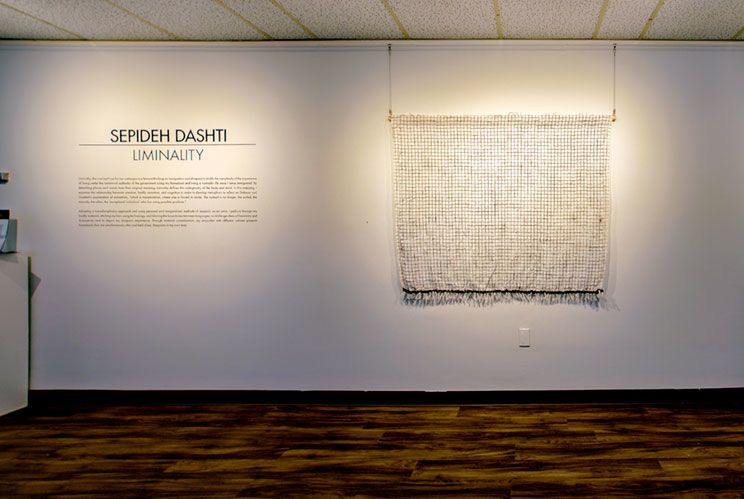Sepideh Dashti: Liminality
August 27 – October 8, 2022
Sepideh Dashti is an emerging transdisciplinary artist who lives in Memphis, TN, USA. She got her Master of Fine Art from Western University in London, Ontario, Canada in 2020. Her artistic practice mainly depicts exploring her visceral experiences through her life under the rule of the Islamic Republic in Iran, and her diasporic life in Canada and in the United States by creating performances, video arts, photographs, and installations. Through multiple narratives and contexts, she rediscovers, reinvents, and reinterprets her Iranian identity, as a pivotal point for exploring her work in the multiple and heterogeneous contexts. She is also interested in cross-field appropriation of the dominant philosophy and technology with her lived experiences in the process of making artwork.
Artist’s Statement:
“Liminality, the concept I use for my contemporary feminist thinking on immigration and diaspora to tackle the complexity of the experience of living under the tyrannical authority of the government ruling my homeland and living a nomadic life since I have immigrated. By detaching places and words from their original meaning, liminality defines the cartography of the body and mind. In this mapping, I examine the relationship between emotion, bodily sensation, and cognition in order to develop metaphors to reflect on Deleuze and Guattari’s explanation of nomadism, “which is transmutation, where one is forced to elude. The nomad is no longer, the exiled, the minority, the other, the ‘exceptional individual’ who has many possible positions.”
Adopting a transdisciplinary approach and using personal and marginalized methods of research, as an artist, I perform through my bodily material, stitching my hair, using technology, and blurring the boundaries between languages, to challenge ideas of femininity and domesticity and to depict my diasporic experience. Through material consideration, my encounter with different cultures presents homelands that are simultaneously afar and held close, diasporas in my own term.” — Sepideh Dashti
Exhibition Photos







